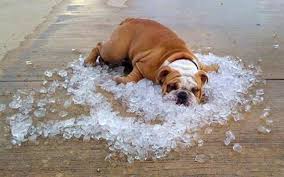3 Steps to Prevent Your Air Conditioning Unit from Overheating

There’s nothing better than spending a day soaking up the sun during the summer, having fun with friends and family. When it’s time to cool down, however, there’s nothing worse than heading inside to find your home hot and muggy because your air conditioning unit started overheating.
Avoid this problem in the future and keep your AC perfectly cool with these three simple, easy-to-follow overheating prevention tips.
1. Schedule HVAC Maintenance Regularly
Your air conditioner has an indoor and an outdoor unit that relies on clean condenser coils to lower air temperature. The inside unit uses refrigerant to absorb the air and cool it down, while the hot liquid refrigerant flows to the outside unit that releases the heat.
If your condenser coils are dirty, the refrigerant cannot release the heat. This will result in your air conditioner running longer, potentially overheating the unit. Establishing an air conditioning service plan with an HVAC expert will ensure your condenser coils are being cleaned using the proper solution and in accordance with the manufacturer’s recommendations.
In between visits from professionals, be sure to remove twigs, dirt, and other debris from around your AC condenser coils to prevent clogging and overheating.

2. Assess Possible Refrigerant Leaks
Low refrigerant levels cause a similar problem as dirty condenser coils — your air conditioning unit will run longer causing issues associated with overheating.
If you notice any of these signs, contact a technician for emergency AC repair right away:
- your home is taking longer than usual to cool down
- your unit is working particularly hard to cool down on hotter days
- the outside unit is covered in ice
Unfortunately, adding more refrigerant won’t solve the issue in these cases. An expert needs to confirm the leak and drain the current refrigerant in order to make the proper repairs and replace the refrigerant. While it may not seem urgent, keeping your AC properly maintained will help you avoid overheating the unit.
3. Replace Air Filters
The air filter is one of the most important parts of your unit — and easiest to keep maintained! It protects from pollutants, dust and dirt. When it gets dirty, it blocks air flow to the entire system, forcing the AC unit to work harder and eventually causing overheating.
Worst possible scenario: If your air filter gets dirty enough the whole system can break down.
Luckily, replacing an air filter is something that can easily be done at home. Be sure to change your filter according to the guidelines from the manufacturer, and change it roughly every one to three months depending on use. If you need information on what type of filter to purchase, don’t hesitate to contact the HVAC experts.
What should I do if I need AC help?
If you are dealing with consistent air conditioner unit overheating or you are concerned there may be a refrigerant leak, contact our team at Sedgwick. We can help assess the problem, make the proper repairs and help prevent further issues. We can keep your home cool and comfortable all summer long while avoiding costly AC overheating problems.